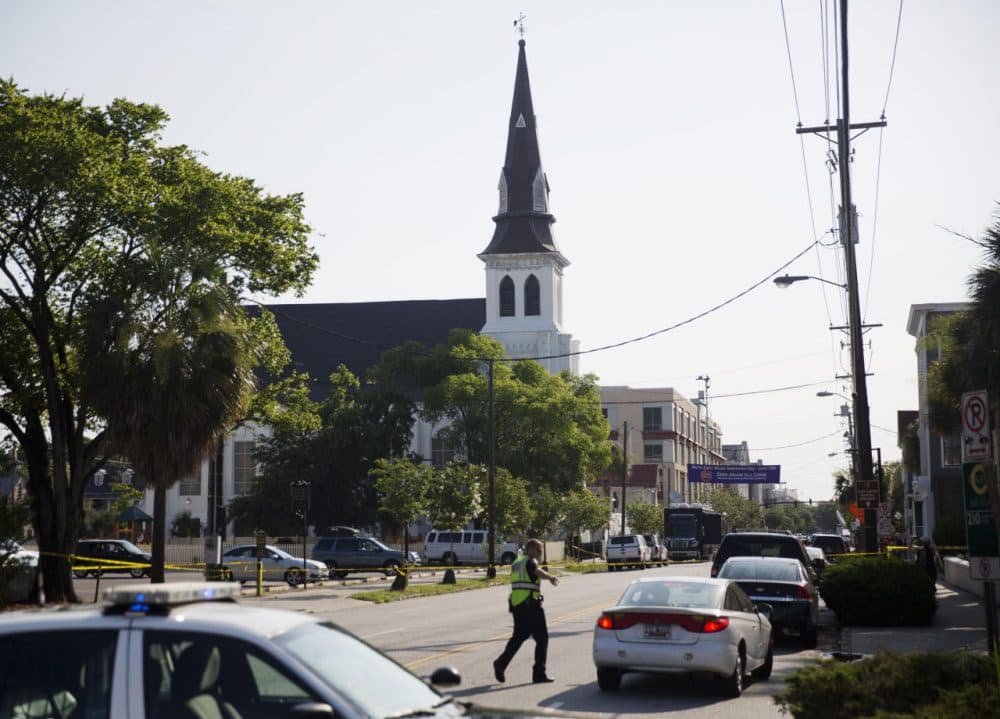Advertisement
South Carolina Shooting Puts Focus On African Methodist Episcopal Church

The African Methodist Episcopal church in Charleston, South Carolina, where a deadly shooting took place last night is the oldest of its kind in the South. The Emanuel AME Church is often referred to as Mother Emanuel. Dennis C. Dickerson, a professor of history at Vanderbilt University, joins Here & Now's Robin Young to look at the church's history and significance.
Interview Highlights: Dennis Dickerson
On the history of the Emanuel AME Church
"It has a remarkable history, started in 1818 by Morris Brown. The church appealed to Richard Allen in Philadelphia, the founder of the AME denomination, to receive the Charleston congregation into the organization. It existed for a number of years until 1822, when one of its local preachers, Denmark Vesey, planned within the church a slave insurrection in Charleston. It was found out, and the church was disbanded, Denmark Vesey and others were hung, and Morris Brown fled Charleston to Philadelphia, where Morris Brown gave him refuge. And Morris Brown became the second bishop of the African Methodist Episcopal Church."
On the church's role in the antebellum period and the Civil Rights Movement
"I believe the people of Emanuel and the people of the other AME churches and other churches are going to redouble their efforts to be that beacon light of hope."
"The church went underground during the Antebellum period, and was revived in 1865 when Richard Cain organized the congregation. Richard Cain, like Clementa Pinckney, was also a minster-politician, and organized his congregation politically, and from Emanuel Church was elected to a term in the United States Congress during Reconstruction. Throughout its history, from that date forward into the 20th century, it was a very important civil rights venue, and it was a place where Martin Luther King, Jr. spoke from its historic pulpit."
Whether or not there will be fear about returning to the church
"I don't believe so, because the church is an open place. It's a sacred ground, and everyone is welcome. And clearly, the incident that occurred yesterday was born of evil and ill intention. But the church has experienced that before, and it's remained open and has emerged stronger. And I believe the people of Emanuel and the people of the other AME churches and other churches are going to redouble their efforts to be that beacon light of hope, and a venue for the advancement of the human condition."
Guest
- Dr. Dennis C. Dickerson, James Lawson Professor of History at Vanderbilt University. He is the retired historiographer of the African Methodist Episcopal Church.
This segment aired on June 18, 2015.